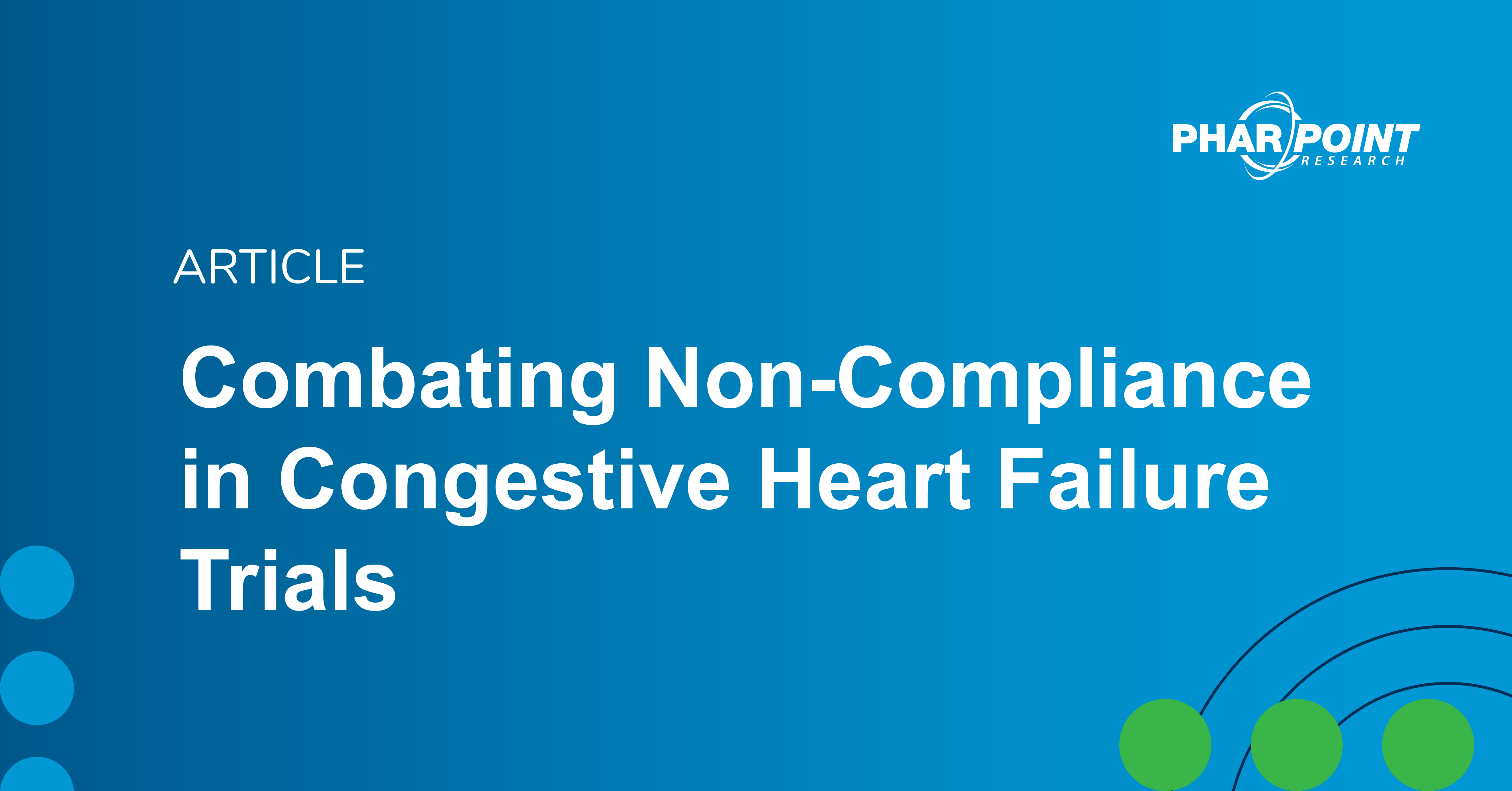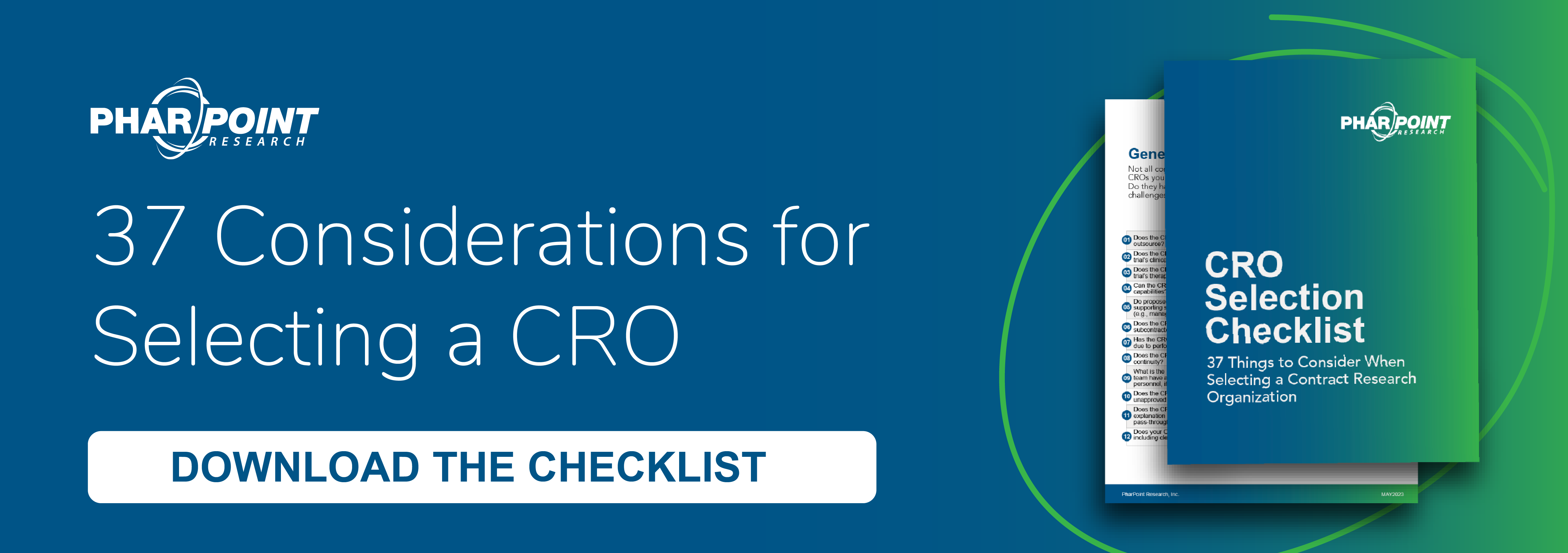
Congestive Heart Failure (CHF) is a condition that affects patients of all ages. Trials within this indication are highly complex, typically including a large amount of data points.
PharPoint’s clinical team members have extensive experience within CHF trials. Our team has found that one of the biggest challenges these studies encounter is the issue of non-compliance.
In this article, we discuss four topics surrounding combatting non-compliance within congestive heart failure clinical trials:
- Understanding of your patient population
- The use of eDiaries
- Evaluating site-patient relationships during feasibility
- Patient centricity and looking at the “small” details
Focus on your understanding of the patient population
Even though CHF patients are very ill – facing complications such as sudden cardiac arrest, among other issues – study participants are often working full-time and may be young adults supporting families and children.
Sponsors, CROs, and site staff working on CHF trials must proactively and collaboratively work to make their trial patient-centric, taking into consideration the varied lifestyles and obstacles participants will encounter as they progress through a study.
Consider using eDiaries
Especially as the patient population tends to be younger adults, the ability to provide reminders or alerts for dosing and upcoming appointments with the use of an eDiary could help support compliance.
Without an electronic means of reminding subjects, study staff should be prepared to set up a system on a site-by-site basis that includes patient notifications/calls in advance of appointments.
Evaluate Site-Patient Relationships During Feasibility
Our team has found that better site-patient relationships typically lead to better patient engagement and improved compliance.
As Sponsors and CROs are evaluating sites during the feasibility process, keeping the following in mind may help ensure high-performing sites are selected.
During the site qualification visit, the study team should ask the right questions to get familiar with the patient database. How often are patients within the site’s database being seen? Are patients being cold-called, or do pre-existing relationships exist? Are referrals occurring based on acute events?
We’ve found that smaller, local cardiology clinics are often highly effective at enrolling and maintaining subject compliance due to the relationships they build with their patients.
Don’t Overlook the “Small” Details
Whenever possible, remember to place yourself in the shoes of the subjects to ensure patient-centricity. Walk yourself through the clinical trial process – what obstacles would you encounter? What barriers would potentially frustrate you? If you were a participant in your trial, what aspects may you overlook or misunderstand, potentially causing non-compliance?
One example of this is IP packaging.
Your protocol may require participants to take a pill multiple times a day. As you consider your packaging, keep in mind considerations such as:
- Ease of use/opening container
- Storage
- Label visibility (e.g., make sure labeling is not destroyed upon opening IP)
- Reconciliation
Conclusion
Combating non-compliance in clinical trials within congestive heart failure requires a proactive approach and an experienced team.
If you have an upcoming study within CHF and are looking for a clinical consultant or CRO to support your study needs, contact our team.
RELATED RESOURCES



